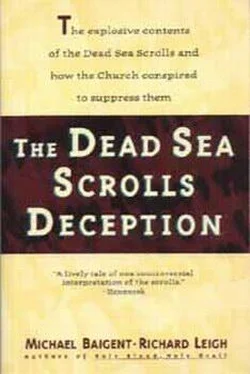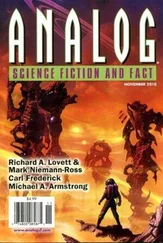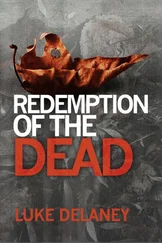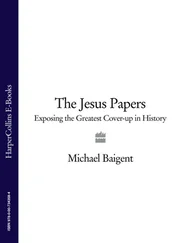The Pope himself, however, recognised that Lagrange’s faith was still intact, and that his heart, so far as the Church was concerned, was in the right place. And indeed, much of Lagrange’s work comprised a systematic rebuttal of Alfred Loisy and other Modernists. Lagrange was accordingly made a member, or ‘consultant’, of the Pontifical Biblical Commission, and his journal, Revue biblique, became the Commission’s official organ. This arrangement obtained until 1908, when the Commission launched a journal of its own, the Ada apostolicae sedis.
From lower down in the ecclesiastical hierarchy, accusations of Modernism continued. So demoralising were these accusations that Lagrange, in 1907, temporarily renounced his work in Old Testament studies. In 1912, he resolved to abandon biblical studies altogether and leave Jerusalem. He was duly recalled to France. But the Pope again rallied to his support, dispatched him back to his post in Jerusalem and ordered him to continue his work. The Ecole Biblique, originally created as a forum for Modernism, had now become a bulwark against it.
Among the original team of international scholars assembled by Father de Vaux in 1953 was the late Monsignor Patrick Skehan. Father Skehan was head of the Department of Semitic and Egyptian Languages and Literatures at the Catholic University in Washington. He was also, later, a member of the Pontifical Biblical Commission. And in 1955, he was director of the Albright Institute in Jerusalem. In this capacity, he was instrumental in the political manoeuvrings which established the Ecole Biblique’s dominance of Dead Sea Scroll research. In 1956, he played a key role in organising the letter to The Times that was intended to isolate and discredit John Allegro. 15
Father Skehan was among the few scholars to be entrusted with access to the scrolls themselves. His attitudes offer some indication of the orientation of the Catholic scholars associated with the Ecole Biblique. Writing in 1966, Father Skehan declared that the Old Testament was not ‘a thumbnail sketch of the history and prehistory of the human race… In the fullness of time, Our Lord came; and a proper part of the duty of every Old Testament scholar is to trace in sacred history the development of the readiness to be aware of Christ when he would come…’ 16In other words, the primary responsibility of every biblical scholar is to ferret out from the Old Testament supposed anticipations of
accepted Christian doctrine. Viewed any other way, the Old Testament presumably has scant value and relevance. This is a curious definition of ‘dispassionate scholarship’. But Father Skehan was even more explicit:
it would seem that in our day it is incumbent upon biblical scholars… to indicate… as best they can the general lines of the progress by which God steadily led, as he surely did, stone age, Chalcolithic, and ancient pagan man to the capability of measuring up, in some degree, to the social fact which is the Christian Church. 17
Father Skehan, of course, made no real pretence to ‘dispassionate scholarship’. In fact, he regarded it as positively dangerous — considering that ‘studies carried out from a perspective that puts literary and historico-critical considerations in the foreground can, usually in the hands of popularizers, result in oversimplification, exaggeration, or neglect of more profound matters’. 18Ultimately, the biblical scholar’s work should be guided and determined by Church doctrine and ‘be subject always to the sovereign right of Holy Mother Church to witness definitively what is in fact concordant with the teaching she has received from Christ’. 19
The implications of all this are staggering. All enquiry and investigation, regardless of what it might turn up or reveal, must be subordinated and accommodated to the existing corpus of official Catholic teaching. In other words, it must be edited or adjusted or distorted until it conforms to the requisite criteria. And what if something comes to light which can’t be made thus to conform? From Father Skehan’s statements, the answer to that question would seem clear. Anything that can’t be subordinated or accommodated to existing doctrine must, of necessity, be suppressed.
Father Skehan’s position, of course, was not unique. It was effectively echoed by Pope Pius XII himself, who maintained ‘that the biblical exegete has a function and a responsibility to perform in matters of importance to the church’. 20As for the Ecole Biblique and its research on the Dead Sea Scrolls, Skehan says:
Are there not… providential elements also in the curious fact that the Holy Land is the place on earth best suited to be a kind of laboratory for the study of human life continuously, with no major periods missing… I believe that there are…
…Therefore, it seems to me that there is an ultimate religious value which we cannot yet measure, but which has Providence behind it, in the fact that Pere Lagrange established upon Palestinian soil an institute… 21
For years, most independent scholars were quite unaware of any such divine mandate having been possessed by the Ecole Biblique, or of the Vatican’s wishful thinking on the matter. On the contrary, the Ecole appeared to be an impartial scholarly institution dedicated, among other things, to collecting, collating, researching, translating and elucidating the Dead Sea Scrolls, not for suppressing them or transforming them into Christian propaganda. Thus, for example, a scholar or graduate student in Britain, or the States, or anywhere else, having established some academic credibility with a thesis or publication in one or another sphere of biblical study, would apply for access to the Qumran material. He’d have no reason to expect a rebuff — would assume the scrolls were available for study by anyone who had acquired legitimate academic credentials. In every case known to us, however, requests for access have been summarily refused, without apology or explanation — and with the inevitable concurrent implication that the applicant himself was somehow inadequate.
Such, to take but one example, was the case for Professor Norman Golb of the University of Chicago. Professor Golb had done his doctoral dissertation on Qumran and on Qumran-related material found in Cairo. Having amassed years of experience in the field, he embarked on a research project to check the palaeographical dating of the scrolls, which had been established by Professor Cross of the international team and which Golb felt could be improved. To confirm his thesis, Golb of course needed to see certain original texts — photographic facsimiles would obviously not have sufficed. In 1970, he was in Jerusalem and accordingly wrote to de Vaux, then head of the Ecole Biblique and the international team, requesting access and explaining that he needed it to validate a research project which had already occupied years of his life. Three days later, de Vaux replied, stating that no access could be granted without ‘the explicit permission of the scholar who is in charge of their edition’. 22The scholar in question was the then Father Milik, who, as de Vaux knew only too well, wasn’t prepared to let anyone see anything. After all the time and effort he had invested in it, Golb was obliged to abandon his project. ‘Since then,’ he told us, ‘I have had good reason to doubt all Cross’s datings of texts by palaeography.’ 23
On the other hand, fragments of Qumran material will be made available to researchers affiliated with the Ecole itself, to young scholars and proteges of the international team, to graduate students under the tutelage of one or another team member, who can be assured of toeing the official ‘party line’. Thus, for instance, Eugene Ulrich of Notre Dame, a student of Cross’s, ‘inherited’ the scroll material originally assigned to Father Patrick Skehan. He also appears to have inherited something of Skehan’s attitude to other scholars. When asked why facsimile photographic editions couldn’t be produced, he replied that ‘the vast majority of people who will use these editions — including average university professors — are barely able to judge competently difficult readings’. 24
Читать дальше












